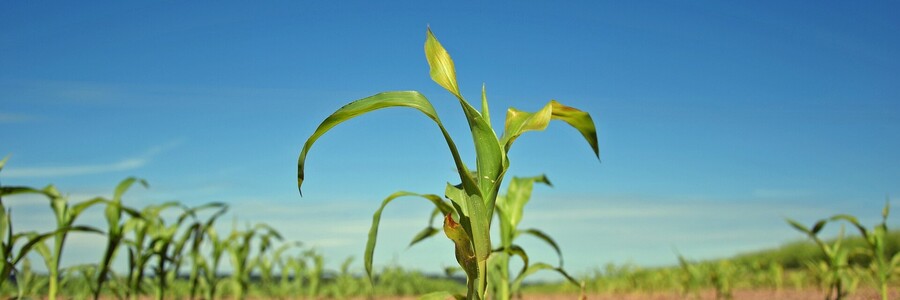Agriculture and its immense influence on sustainable development
Food systems are crucial for sustainable development and the achievement of the Sustainable Development Goals. They can contribute to
- End poverty
- eradicate hunger
- achieve food security
- improve nutrition
- promote sustainable agriculture
- Support sustainable consumption and production
- combat climate change
- protect nature and
- reduce inequalities.
In the recently published report "The State of Food Security and Feeding the World" by the Food and Agriculture Organisation of the United Nations, numerous scientists have examined the impact of agriculture and agricultural policy on environmental and social factors. The result: The current public subsidies for agriculture do not contribute to improving the conditions of food production. The main reason for this is that agricultural policy has the wrong goals and incentives. This actively steers away from the achievement of the SDGs and the goals of the Paris Climate Agreement.
According to the report, the agricultural sector has made great strides in producing food for a growing population, reducing real food prices in many countries, improving food safety and reducing foodborne diseases. However, current food systems contribute to complex global and environmental challenges such as climate change, environmental degradation and natural resource constraints.
In addition, the number of undernourished people is also on the rise again: After remaining flat for five years, it increased by 1.5 percentage points in 2020. Globally, more than 720 million people were affected by hunger in 2020, and almost one in three people in the world, or nearly 2.37 billion people, lacked access to adequate food. Healthy food was out of reach for around 3 billion people in 2019, especially poorer populations, in all regions of the world. At the same time, population growth is leading to an ever-increasing demand for food.
Report shows: policies favour agriculture that is harmful to the environment and human health
The report looked at 88 countries that are significantly involved in the distribution of agricultural subsidies. Between 2013 and 2018, subsidies to agricultural producers in these countries averaged almost US$540 billion per year, or about 15 per cent of the value of total agricultural production. 294 billion US dollars of this was provided in the form of price incentives, while around 245 billion US dollars was provided as tax subsidies. About 70 per cent of the tax subsidies were linked to the production of a specific commodity. The smallest share, $110 billion, was provided to promote public goods. This means that 470 billion dollars, or 87 per cent of agricultural subsidies worldwide, have negative consequences for the population or the environment.
Price incentives and tax subsidies, for example, create incentives for production practices and behaviours that are detrimental to the health, sustainability, equity and efficiency of farming systems. More and more farmers around the world are specialising in the cultivation of a few varieties that attract the highest subsidies. Fiscal subsidies linked to the production of a particular commodity can thus lead to negative environmental impacts, as they encourage, for example, the cultivation of monocultures and, concomitantly, the excessive use of agrochemicals. Thus, support linked to production can ultimately hinder sustainable market development, trigger price shocks at the global level, create incentives for the production of emission-intensive products or limit the availability and affordability of more diversified and nutritious food, especially for poorer consumers.
And yet: emissions-intensive and unhealthy products receive the greatest monetary support
The report finds that unhealthy products, such as sugar, and emissions-intensive goods, such as beef, dairy and rice, receive the greatest monetary support globally. This is despite the potentially negative impacts on health, climate change mitigation and the disincentives this support creates for producing healthier and more nutritious foods.
According to the report, food production is one of the main contributors to air and water pollution. According to the report, the intensification of agriculture has contributed to immense pollution of the land and seascape. Pesticides, the excessive use of fertilisers and antibiotics are particularly to blame. The current agricultural systems are also in a bad position with regard to water consumption: these are the largest consumers of water, currently accounting for about 75 per cent of freshwater consumption worldwide. In addition, agricultural production is responsible for about 25 per cent of current greenhouse gas emissions. Here, too, a misguided agricultural policy can be criticised, since products such as meat or milk, for example, are financially supported by the current agricultural system, which emit high amounts of CO2.
The way in which countries provide monetary support to the agricultural sector varies greatly depending on policy objectives and tends to change with the stage of development. For example, price incentives and tax subsidies linked to production are often used in high-income countries, such as the Member States of the European Union. For example, these types of subsidies account for over 40 per cent of global agricultural production value. In middle-income countries such as Argentina, Ghana and India, on the other hand, policies often still disadvantage farmers through low prices. Similar trends can be seen in low-income countries, such as those in sub-Saharan Africa, where farmers receive minimal tax support. The agricultural sector is also disadvantaged by policies that seek to keep food prices low in order to protect poor consumers.
Redistribution strategies needed
The report clearly shows the need to advocate for strategies to redistribute agricultural subsidies at the national, regional and global levels: Price distorting measures and subsidies linked to production decisions are still widespread. Moreover, most subsidies worldwide are still granted to commodities with the largest environmental footprint. According to the report, greater efforts are therefore needed to reduce environmentally or socially harmful subsidies such as price incentives or subsidies linked to commodities. Instead, investment funds should be invested in public goods and services for agriculture, such as research and development and infrastructure, and in decoupled tax subsidies. The result would be more positive agricultural growth and effective poverty reduction.

